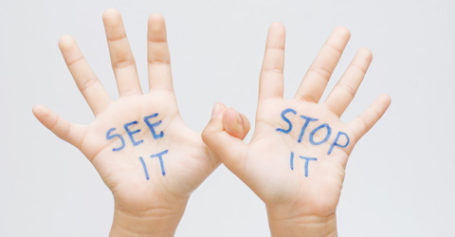Bullying Advice
At The Bewdley School, we are committed to providing a caring, supportive and safe environment for all of our students so they can learn in a relaxed and secure atmosphere. Bullying of any kind is unacceptable at our school. If bullying does occur, all students should be able to tell and know that incidents will be dealt with promptly and effectively.
Definition of bullying
Bullying is when someone repeatedly and on purpose says or does mean or hurtful things to another person who has a hard time defending him or herself.
What should students do?
If you are being bullied the most important thing to do is to tell someone, preferably an adult you can trust. You have the right to be safe from harm. No one deserves to be bullied and there are things that can be done to help you.
What should parents do if their child is being bullied?
- Stay calm and reassure your child that you will do everything you can to stop the bullying
- Make contact with us or the place where the bullying is happening immediately. Notify them of what is happening and ask them to put a support plan in place to support your child whilst the issue is being dealt with
- Consider speaking with your GP if you feel your child’s physical or emotional health is being affected by what is going on
Do’s and don’t do’s!
Do:
- DO look at your child’s school bullying prevention (anti-bullying) policy which will help you understand what actions the school will take
- DOcontact the school and ask to speak with the person who is responsible for tackling bullying. If the bullying is taking place outside of school but involves pupils at your child’s school, still make contact, as we could help.
- DO reassure your child and ask them what they think the school could do to make them feel safe in school. Their ideas can then be shared with the school and used to inform any support plans
- DO screenshot any offending remarks that have been made on social media to provide evidence of the victimisation and keep a diary of events.
- DO contact the police on 101 if your child has suffered a serious assault
- DO model a positive and considered approach to the problem (harder said than done, we know)! This will give your child an extra sense of security and reassurance
Don’t:
- DON’T confront other parents or the child / young person about the behaviour. When emotions are running high, things can quickly get out of hand!
- DON’T take to social media to vent your anger! Making comments which could cause harm or distress to another individual is a criminal offence Under the Malicious Communications Act and you could be visited by the Police! Remember the age of criminal responsibility in England is 10 years of age so this one applies to your children too! When information is out there, it’s out there!
- DON’T tell your child to fight back. This can result in an escalation of problems
- DON’T tell your child to “Toughen up, lots of people get bullied, you have to learn to deal with it!” There is always a power imbalance when a child is being victimised and adults need to intervene to redress the power imbalance
Extra help and support
- Anti bullying Alliance: anti-bullying tool for parents and carers
- If you would like support and advice, you can talk to a family support worker at Bullying UK on their confidential helpline on 0808 800 2222. You can also share experiences and advice with other parents on the Family Lives Forum
- Kidscape is small charity that provides information, training, and support for parents and children facing problems to do with bullying. They provide a parents helpline on 020 7823 5430 (Mon-Tues, 10am-5pm)
- Think you Know – for advice on all things digital safety, find out what’s good, what’s not and what you can do about it. Most importantly, there’s also a place which anyone can use to report if they feel uncomfortable or worried about someone they are chatting to online
- Gingerbread – a national charity that supports single parents
- Internet Matters – for more information about cyberbullying and online safety
- Worcestershire County Council Safeguarding – for information on all aspects of keeping children safe
- Am I a bully? If you think your child is bullying others, this BBC guide may help them reflect on their behaviour
- Kooth is a safe online place where you can get help, advice and support with anything that’s causing you stress, hardship or embarrassment; find out about local services, events and news; write your blog or magazine articles
- Bullying UK is part of the Family Lives national charity and provides lots of useful help and advice to families
- Childline is a national charity with free online and telephone support to children and young people, with any problem or concern they may have
- Act On It a site for helping you build safe relationships




